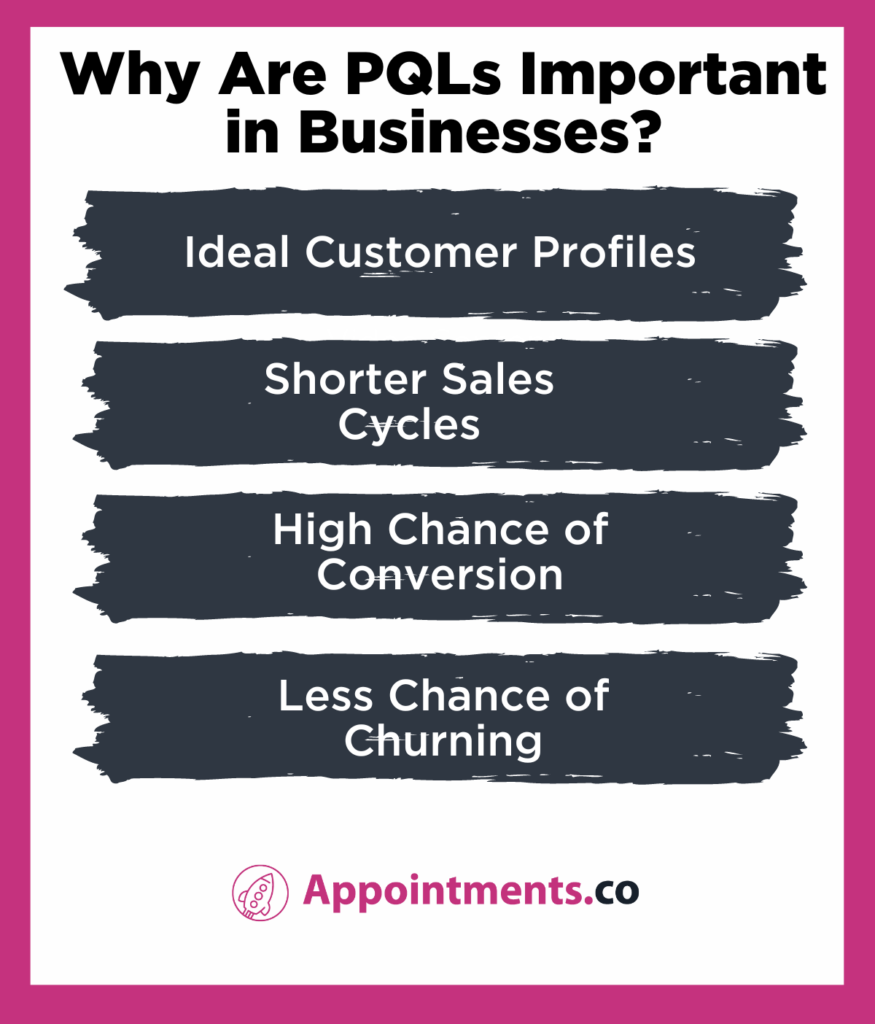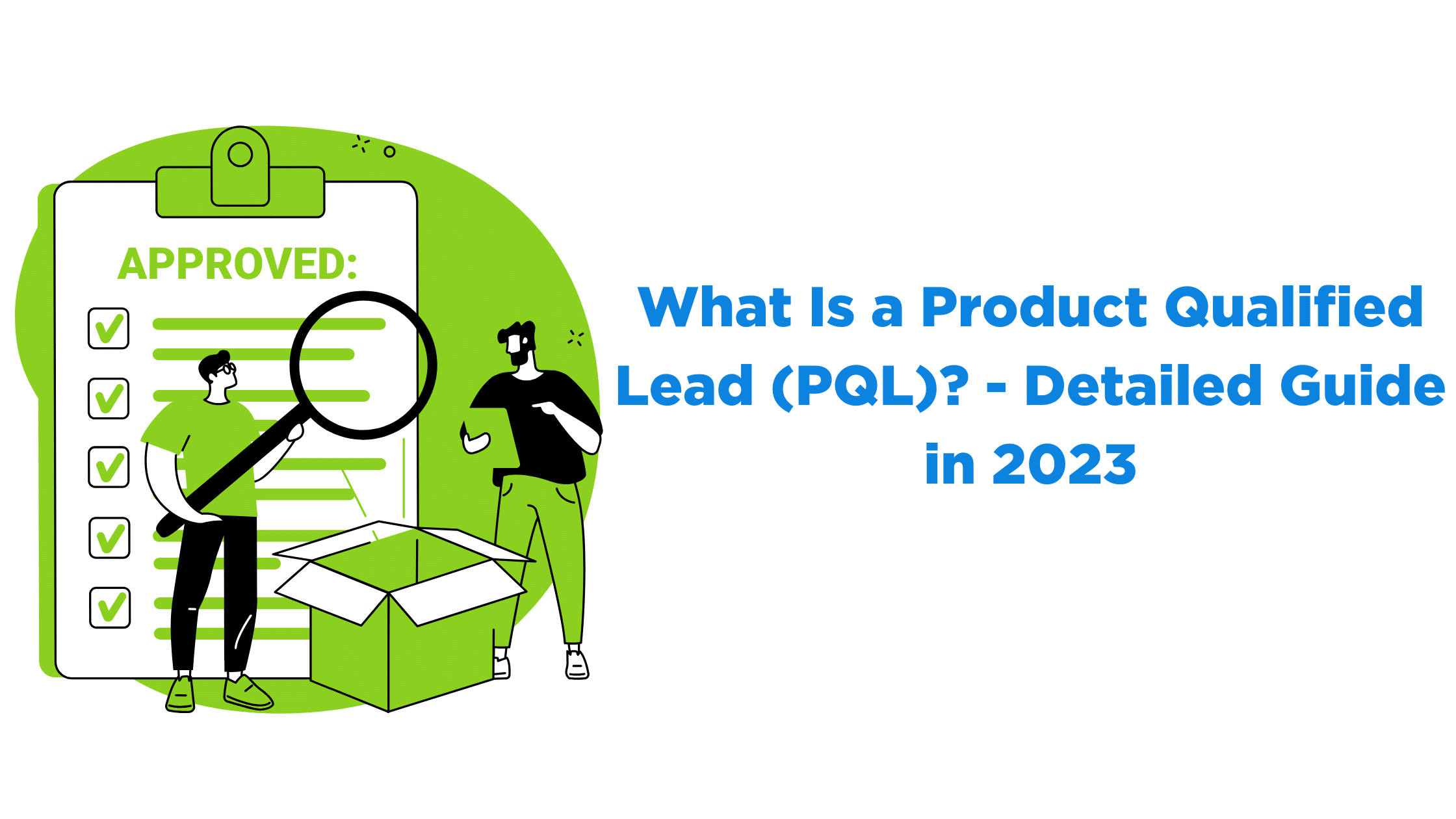If you are wondering whether it is true that product qualified leads are more likely to convert into customers compared to other leads, you should first know who they are and have detailed and in-depth knowledge about PQLs, so you can identify and handle them appropriately to successfully convert them as your customers.
Product qualified leads (PQL) are a type of lead that has directly benefited from your product through a free trial or freemium model. In simple terms, A PQL is someone who has already experienced the benefits of your product even before you approach them, making the sales process smoother.
Table of Contents:
1. What Are Product Qualified Leads (PQL)?
2. Why Are Product Qualified Leads (PQLs) Important in Businesses?
4. Define PQL to Suit Your Business
What Are Product Qualified Leads (PQL)?
A product-qualified lead (PQL) is someone who has personally gained value from using a product, typically through a free trial or limited feature access. What sets a PQL apart from a marketing-qualified lead (MQL) is their actual usage of the product, making them more likely to make a purchase. PQLs have gone beyond simply researching, receiving promotions, or being referred to a company, they have experienced the product firsthand and recognized its value.
Who Do You Consider Product Qualified Leads?
The opportunity given by a business for its target audience to try a product or service always works as an effective marketing strategy, which is why many software companies offer free or trial versions of their products with certain limitations. For example, you may get full access to a program, but with a storage limit. Each company has its own criteria for determining product qualified leads (PQL) based on data collected from product usage.
Factors, like the time spent using the software, specific features used, company size, and interactions, such as downloading content or contacting support can help identify PQLs. It’s all about tailoring the qualification process to each company’s unique situation.
(Source: https://foundationinc.co/learn/product-qualified-leads/)
How To Determine Product Qualified Leads?
One of the biggest challenges for a business is understanding how to define a product-qualified lead (PQL). It can be challenging to determine what actions or behaviors indicate a PQL for your business. For example, should it be based on email activation, completing a key task, sending a certain number of messages, or adding a customer to the platform?
There are many possibilities to consider, but what’s important is finding behaviors that correlate with people upgrading. As your product evolves and introduces new features, defining a PQL can become more complex. The more products and features you have, the harder it becomes to pinpoint the exact behaviors that lead to upgrades.
To define an ideal PQL, you need to understand your value metrics. There are simple and effective PQL definitions out there that you could explore to get some great examples to see how straightforward they can be. Don’t let complexity deter you from understanding and utilizing PQLs in your business.
What Are Some Examples of Good PQL Definitions?
The definition of a product-qualified lead (PQL) varies for each business, just like with marketing-qualified leads (MQLs). Conversion correlation data, such as experiencing a product’s best moment, can inform PQL definitions. PQLs are dynamic and businesses should constantly refine their definition to ensure users experience meaningful value in the product.
Well-known brands, like Slack, Facebook, and Drift have specific PQL definitions tailored to their products, increasing the likelihood of conversion and user satisfaction. PQLs have higher conversion rates than MQLs because they understand the product’s value and often convert at rates of 20-30% in the B2B SaaS industry.
How to Identify What Product Qualified Leads Are for Your Business
Defining product qualified leads (PQLs) properly can benefit your business by aligning marketing and sales, converting more free users, and identifying obstacles to user success.
User behaviors, such as product interest, number of users, features used, spending patterns, usage patterns, and adoption velocities indicate buying intent.
Analyze your product data to find behaviors strongly correlated with users becoming paying customers. Tools, like Mixpanel, Amplitude, or Heap can assist in this analysis. Consider using predictive modeling, or consulting an analytics expert if needed to identify your PQL definition.
Installing a product analytics, or adoption platform can help gather data on user behaviors related to account upgrades. Start with a few initial PQL definitions and identify them based on testing and feedback.
Why Are Product Qualified Leads (PQLs) Important in Businesses?
It takes a lot of time for salespeople to demonstrate the product, while also conducting lengthy customer discussions before making a sale. But, thanks to the SaaS sales model, all that has changed. The following are some of the benefits PQL has brought to subscription companies.

1. Ideal Customer Profiles
Product qualified leads (PQLs) are the easiest customers to sell to because they have already experienced and found value in your product. Unlike sales-qualified and marketing qualified leads, PQLs do not require convincing to make a purchase.
They have interacted with your product, and know its worth. On the other hand, sales-qualified and marketing qualified leads are determined by engagement metrics, and may not have had the opportunity to try your product yet.
This makes predicting their buying intent more challenging. Therefore, PQLs, who have already experienced your product’s value, are the most receptive and ready to become paying customers.
2. Shorter Sales Cycles
Generating product-qualified leads (PQLs) eliminates the need for a lengthy sales process that software sales reps used to go through. In the past, potential customers needed multiple demos and discussions before making a purchase. However, with PQLs, the sales team doesn’t have to put in much effort to convert leads into paying customers. They already have experienced the product’s value, so the sales process becomes more streamlined and efficient.
3. High Chance of Conversion
PQLs have a higher conversion rate compared to MQL – Marketing Qualified Leads. On average, only 13% of MQLs reach the opportunity stage, and among sales-qualified leads, only 6% end up converting. It takes a long time, about 84 days, for a sales conversation to occur with MQLs. In contrast, PQLs convert at a rate that is 5 to 6 times higher than MQLs. This indicates that PQLs are more likely to become paying customers in a shorter period of time.
4. Less Chance of Churning
Users who have a positive product experience are less likely to stop using the product (churn). In a PQL model, the sales team targets users who have already derived value from the product, ensuring that the sales funnel continues beyond just a few months. This approach leads to high retention rates within the PQL model.
Frequently Asked Questions
1. How do you generate product-qualified leads?
To generate product-qualified leads, define criteria that determine if a lead is a good fit for your product. Identify leads likely to engage and make a purchase, and tailor your business and product to them.
2. What does it mean to qualify leads?
Qualifying leads involves assessing and identifying those with a higher chance of becoming paying customers. This can be done through marketing, sales, or evaluating customer engagement. By qualifying leads, you can prioritize resources on the most likely converters.
3. What is the difference between PQL and MQL?
PQL stands for product-qualified lead, and focuses on evaluating customer engagement with your product. MQL stands for marketing-qualified lead, and assesses marketing engagement to determine if a lead is ready for the sales team. Both PQL and MQL are crucial for identifying leads and starting the sales process.
4. What does PQL stand for?
PQL stands for product-qualifying lead. It refers to a user who has engaged meaningfully with your product or business, and is ready to become a paying customer, often through a freemium model.
Related Reads
Sales Funnel Marketing – Best Guide
Define PQL to Suit Your Business
The sales funnel relies on marketing to educate prospects, but it can be frustrating when potential customers invest time without having a genuine need. While MQLs and SQLs are commonly used, the PQL model shifts the focus to the product itself. It allows for better alignment between sales and marketing teams and gives customers the ultimate say in determining if a product is a good fit.
PQLs are gaining popularity in software and SaaS companies, but they may not apply to all businesses, particularly those with physical products. Qualifying leads through product usage remains an alternative route.
For more marketing and sales-related information to help you grow your business, or if you need appointment services, reach out to Appointment.co for simple, quick, and practical solutions.
Illustrations – Storyset



